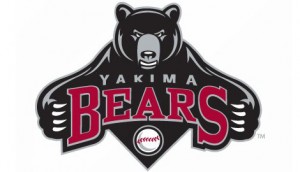 The proposed relocation of the Class-A Yakima Bears baseball team to Vancouver would mean $4.6 million in annual economic activity for the community after construction of a new stadium, according to an analysis released by the Columbia River Economic Development Council.
The proposed relocation of the Class-A Yakima Bears baseball team to Vancouver would mean $4.6 million in annual economic activity for the community after construction of a new stadium, according to an analysis released by the Columbia River Economic Development Council.
The development council was asked to provide an objective analysis of the potential economic and fiscal impacts baseball would have on the community. Cascade Planning Group and E.D. Hovee & Company generated the council’s report.
In early May the owners of the Yakima Bears announced plans to move the team to Vancouver. The proposal includes building the $22.7 million multi-use stadium at Clark College in which all but 30 percent of the financing would come from an entertainment admissions tax imposed by Clark County.
The tax would be applied to entertainment events like movies and performances and baseball, although the exact details have yet to be worked out.
In bringing the team to Vancouver and constructing the multi-use stadium to house them, Clark County would be asked to finance 70 percent of the stadium’s $22.7 million cost by collecting the entertainment admissions tax annually for the next 20 years. During that 20-year period, the development council’s report suggests the stadium would generate $126.5 million in economic activity through construction and annual return. That does not include additional economic benefit achieved by hosting tournaments at the stadium.
Government officials and citizens have anxiously awaited the report. Although the analysis does not issue a formal opinion on whether baseball should be brought to Vancouver, it does not label any outright negative economic impacts.
As recently as Monday, members of the Vancouver City Council raised concerns over the substantial public financing component to the stadium and said they were looking forward to the development council’s analysis of the project. Council members and citizens who spoke during the council meeting were critical of using tax money to partially fund the stadium given the city’s current economic climate.
This week the Clark County commissioners voted two-to-one in favor of signing a letter of intent with the team owners, Short Season LLC. The letter is a non-binding agreement that establishes the roles of the county, Clark College and the Short Season group if the baseball project were to move forward.
According to that plan, the Short Season group would finance, construct and operate the stadium. The county would consider an admissions tax to fund the public portion of the project’s financing and Clark College would establish a ground lease agreement with Short Season for the land where the stadium would be built.
At both the City Council meeting and commissioners’ meeting officials raised concern over using the admissions tax to fund the stadium, although most expressed pleasure at the idea of bringing baseball to Vancouver.
The $4.6 million annual economic impact is a combination of the direct and indirect economic influence the stadium would have after construction. The report also suggests construction of the facility would create a one time combined economic benefit of $34.5 million with a total combined payroll benefit of $13.4 million.
Construction of the stadium is projected to take 15 months.
Once operational, the baseball organization would employ 12 full-time workers and an additional 120 to 140 employees during games, according to the report. That results in 25 full-time equivalent jobs added to the local economy.
During construction, the report says local governments would receive nearly $500,000 in one-time sales tax revenue. During the stadium’s regular operation, just over $100,000 in state and local sales tax would be generated annually, according to the analysis.
The report also outlines the importance of tournaments held at the facility. According to the analysis, the average tournament generates $400,000 in local economic activity and the stadium facility could host between 10 and 15 tournaments annually.
Although the report outlines a dollar figure for tournaments, it also says that estimating economic impacts from tournaments “is challenging because tournaments vary greatly in scope and impact.”
The report outlines various additional benefits that it says are harder to measure, such as fulfilling some Title IX requirements at Clark College. The report says the stadium would provide “ample opportunities for both men’s and women’s sports.”
The facility would also help to alleviate crowding of local school athletic facilities that the report says have been identified in Clark County as overburdened. The stadium could also host various community events such as concerts, outdoor plays and other entertainment that would be well suited to a venue the size of the proposed stadium.
During public comment sessions at recent government meetings, some citizens expressed the need for an arts center in Vancouver. The development council’s report says a stadium would help to create an entertainment district in the Central Park Neighborhood; something the report says is identified in the Central Park Master Plan. The report links that entertainment district to the possible future construction of an arts center.
According to the Short Season group’s plans, the stadium would seat 4,000 spectators and host 38 home baseball games for the Bears each season. The rest of the stadium’s schedule would be occupied by college and community events.
The county commissioners have scheduled a tentative work session for Aug. 24 to discuss the proposed admissions tax.
The development council’s full report is available here as a PDF: Economic & Fiscal Benefits Analysis of Multi-Use Facility to Attract Yakima Bears
To read couv.com’s past coverage of baseball related meetings, see “One out and two runs as board agrees to letter of intent” and “Baseball a homerun, funding a strike.”









